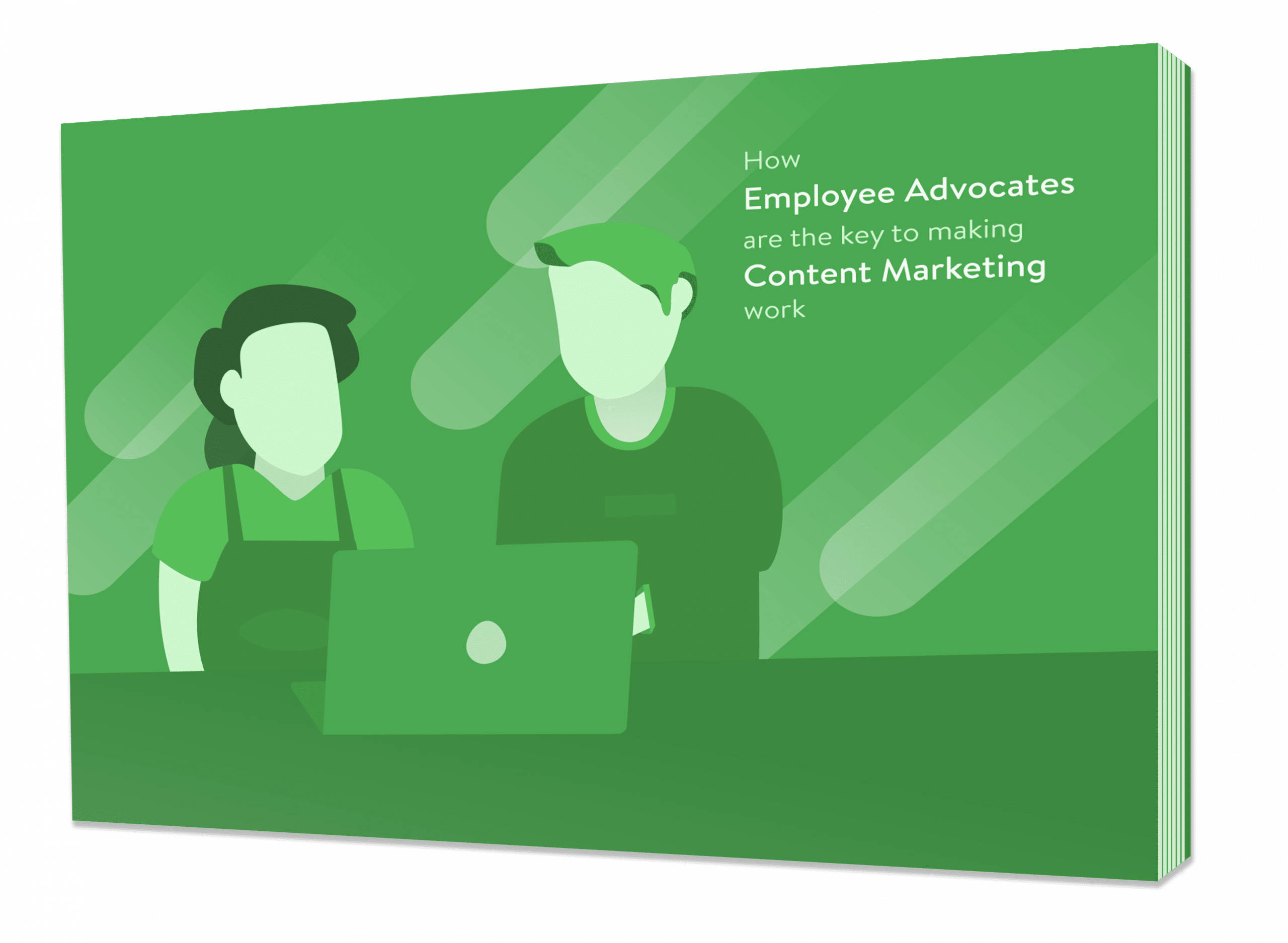An employee advocate can improve your brand reach, authenticity and trustworthiness.
Businesses pour colossal amounts of resources into creating positive chatter around their brand online. And while the sales teams may see a boost in return, marketing is stuck spending the time and money trying to identify the what and how to get people talking. Should we create an ebook? Maybe a video? Would this fit on the blog? Or maybe we should distribute it on social? Through email? Ads in the yellow pages? (Just kidding on that last one.)
While were scratching our heads, were totally overlooking our most powerful channel to get our content noticed our employees! These are the people who know the company better than anyone else.
The human conduit refers to the notion that information conveyed by real people is way more believable than what companies say as a brand. In other words, employees are more credible than the corporate message. And, on average, your employees have about 10 times the connections than your brand has alone, according to a study from Social Chorus. That means, your company with 250 employees on payroll can easily reach some 2,500 more people than your marketing department alone.
But an employee advocate is born from culture, not technology
Companies today are impatient. The explosion of technology has allowed us to work faster. Companies expect results faster. Marketing faster. Sales deals to close faster. Weve forgone the mindset of gaining our customers trust in exchange for gaining the customer, period. Now. We need to shift into a sales tour guide role giving our audience what they need, when they need it. And that shift is rooted in company culture.
At the root of culture lies engagement. Employee engagement creates advocates. And an employee advocate then becomes an evangelist. They crave the chance to scream your message across their many networks online. And when they do, theyre spreading your marketing reach to all their friends, family, neighbors, business acquaintances, and so on.
If your employee isnt your biggest advocate, your brand has bigger issues. Its hard to make a culture shift. Not to mention, it’s tough to convince senior leadership to change “the way it’s always been.” And then if they do agree to change, it usually happens over a period of several years, so some of your best workers will have already left. If the C-suite sees employees fleeing, that might persuade them to embrace a more social business culture, but not always. On the other hand, though, if they see customers fleeing, thats a whole lot more convincing.
Companies that are good places to work are good at creating employee advocates. People who love what they do will want to share their hard work with the people in their network because theyre proud of it.
An employee advocate gives your brand authenticity
The thing is, though, marketing has to relinquish some control over messaging. Your people have to actually be genuine and authentic when they post and share branded content. Marketing, in general, tends to get so excited about a new idea or tactic, so we push it really hard. Then we push it again. And we push it a little more. Leaving our employees to feel trapped into sending the exact message we send to their network, when we say to send it or they just dont do it at all.
To paraphrase Shakespeare, too much of a good thing is too much of a good thing. Instead, we must allow our employee advocate to feel empowered to share the content they like. With a message that actually sounds like something theyd say. Can we give them the tools to make it easy? Absolutely. And we should! But we can’t force them into participating. After all, if we coerce advocacy, is it really advocacy? (Hint: No. No, its not.)
As our friend Jay Baer said on the Social Business podcast, “Employee advocacy needs to be voluntary with guidelines, training and support. No good social media gets created at bayonet point.”
People trust your workers more than they trust you
Consumers want to buy from people they like and trust. And the people they like and trust sit in the cubical next to you. Employees are, by and large, the most credible voices you have regarding the companys work environment and integrity. Content shared by employees creates a level of trust between prospects or customers and your brand. An employee advocate humanizes the company. And if a customer feels theyre talking to a real person, not a marketing bot, theyll have a faster track to loyalty in your brand.
Today, an employee advocate is trusted twice as much as a CEO. Gone are the days of a CEO promoting their own brand. Instead, they want to hear from the people who work at the company. If the employees are happy, its obvious in their posts. And the brand becomes more trusted and more credible.
Social advocacy isnt enough
The reality is, if youre only using social to power all your employee advocacy efforts, youre simply not maximizing the opportunity you have to use your employees connections and trust advantage to get your content consumed.
Not every employee on your payroll is on social you know, its becoming trendy to go sans right now. And something Ive struggled with, it mixes business with personal life. I love sharing my content with my friends and family on Facebook and Twitter, but if I share only work content all day, every day, theyre going to start tuning out. Or worse, theyll unfollow me. Theyre not going to trust that Im sharing for their interest and instead theyll think Im only out to make a buck.
Instead, tap into the network you already own. Use corporate email signatures to share your branded content.

Want more on empowering your employee advocates? Check out our new ebook, co-authored with Jay Baer.

